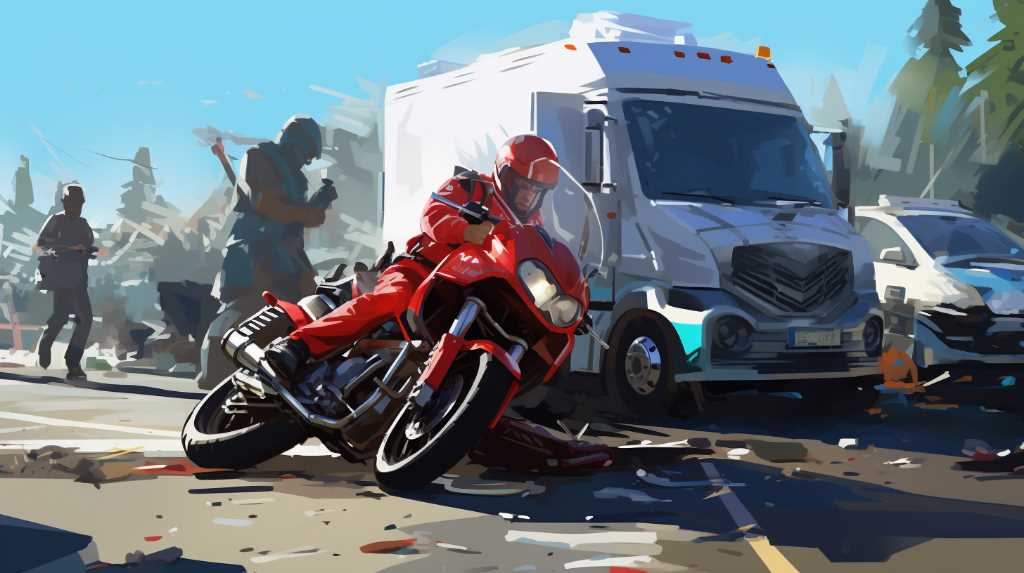
After a motorcycle crash, many people wonder if their health insurance will cover the injuries. It’s important to look closely at your health insurance policy to understand what’s covered and what’s not.
Knowing how your health insurance works with your car insurance can affect who pays for what. This guide will help you figure out your insurance coverage after a motorcycle accident, and you should also be prepared for any costs you might have to pay yourself.
Understanding Your Health Insurance Policy
When you look at your health insurance, you need to check if it covers you if you get hurt while riding a motorcycle. Every insurance plan is different, and some might not cover accidents from riding motorcycles because they are seen as risky.
Make sure to read your insurance policy closely to find any parts that talk about car or motorcycle accidents. You should understand what the policy covers, like stays in the hospital, emergency help, and therapy after an accident.
It’s important to know how much you have to pay out of your own pocket, including deductibles and copayments, for these types of accidents. By knowing all this, you can decide if you need to buy extra insurance for when you ride your motorcycle.
Health Insurance Vs. Auto Insurance
If you ride a motorcycle, it’s important to know the difference between health insurance and auto insurance.
Health insurance covers your medical costs if you get hurt, no matter how it happens. It’s there to make sure you get better.
Auto insurance is different. It has parts like MedPay or PIP that pay for your medical bills if you get into a car crash. Plus, it usually comes with liability coverage. That means if the crash is your fault, your insurance helps deal with claims from others.
It’s important to have because in lots of places, it’s the law to have some liability coverage.
Coverage Limitations and Exclusions
When looking at health insurance, it’s important to know about any limits or things that aren’t covered, especially if you’re in a motorcycle accident. Health insurance usually has a list that shows what’s covered and what’s not. If you ride a motorcycle, you might have to pay more out-of-pocket, like a higher deductible or co-pay, because motorcycles can be more risky than cars.
Also, some injuries or treatments might not be included in your plan. For example, if you get hurt while racing or doing stunts on your motorcycle, your insurance might not pay for it. Things like rehab, care for a long time, or new treatments that aren’t proven yet might not be covered, either.
It’s really important to read all the details of your health insurance plan so you know exactly what’s covered if you get hurt in a motorcycle accident.
Navigating Claims After an Accident
After a motorcycle accident, many individuals must promptly navigate the often complex process of filing a health insurance claim to ensure coverage of their medical expenses.
This task requires a meticulous review of policy details and an understanding of the required documentation. Claimants must accurately report the incident and injuries sustained, as insurers will evaluate these against policy terms.
An analytical approach is vital to identify coverage scopes and any potential exclusions that may affect the claim’s success. The objective is to compile a comprehensive and precise claim that aligns with the insurer’s processes, thus avoiding delays or denials.
Throughout this process, claimants must remain vigilant, ensuring that the full spectrum of their medical treatment is accounted for and communicated effectively to the health insurance company.
Preparing for Out-of-Pocket Costs
If you’re involved in a motorcycle accident, be ready to pay for some medical bills on your own because your health insurance might not cover everything. You’ll need to pay for things like deductibles, co-payments, and coinsurance, and sometimes other treatments that your insurance doesn’t include.
It’s important to look closely at your health insurance plan to know what it pays for and how much coverage you really have. Make sure you understand what the policy doesn’t cover so you can figure out how much you might have to pay by yourself.
To avoid money worries after an accident, it’s smart to save some money in advance or have an emergency fund. Also, think about getting extra insurance before anything happens, so you have more financial backup.
Conclusion
When it comes to health insurance covering motorcycle accident injuries, it’s crucial to understand how it works with your car insurance.
You need to look closely at your policy to see what’s covered and what’s not. This means knowing the details, like coverage limits and what’s excluded, can help you figure out how much you might have to pay yourself.
So, it’s really important to know exactly what your insurance covers to avoid surprise bills if you ever get into a motorcycle accident.